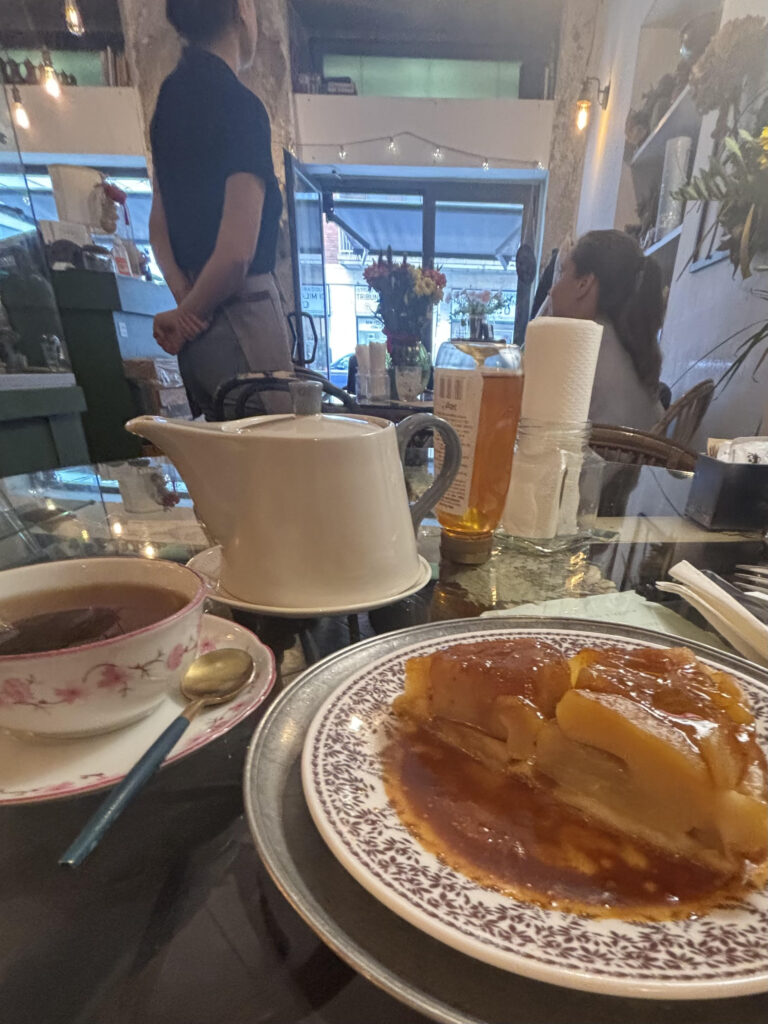As I acclimated to Milan’s day-to-day life and culture, I began to see a consistent theme besides the noise of the tram, pop-up flower shops, and endless accessibility to carbs in all their glorious forms: the word “Prego.” My first impression of this word was simply that it meant “Welcome.” But as time progressed, I began to see that its meaning was far deeper, with not just two, but three meanings. Prego has come to represent the warm, hospitable, and communal aspects of Italian culture.
Prego, at its most basic form, means “welcome.” Over time, I began to find my favorite local spots. One was Croque Monsieur, a café next to my learning center that had the best apple pie I’d ever had. After talking with the barista, I learned that it was a French dessert that her mom made fresh every morning. When I entered the café, I was always greeted with a “Ciao Dorothy! Prego! Tarte tatin? There, the word Prego meant a warm welcome, with the guarantee of a familiar face and a comforting dessert.
Prego can also mean “how can I help you?” When I was short on time and needed a cheap, quick lunch I would stop in Luini, a bustling panzeroni shop right in the city center next to the Duomo. There a cacaphony of “pregos!” would surround you when stepping inside. When making it to the counter the “prego!” came from a worker, with a face in focused concentration and a sheen of sweat shining under their chef’s hat. The phrase in this setting is efficient and gets the job done.
Prego can also be used when giving up your seat on the tram for an elderly person, which is expected in Italian culture. Here, prego represents my favorite aspect of Italian culture: the sense of community. If an elderly person was left standing on the tram I knew I could simply stand up and point to my seat with a “prego?” Which would usually be answered with a “grazie mille” and then met with a subsequent “prego” from me.
The essence of “prego” is something I hope to bring back with me. I want to find ways I can implement all the different meanings of prego in my daily habits and community.

